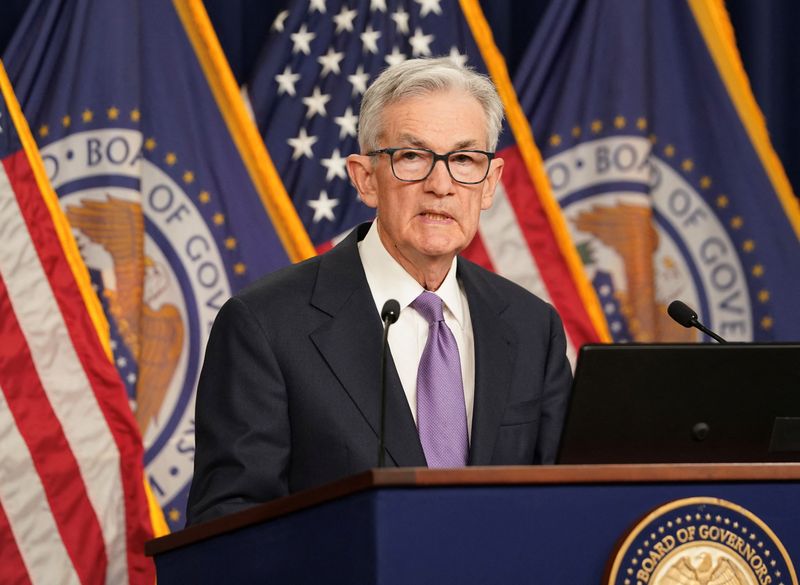Investing.com -- Federal Reserve chairman Jerome Powell said Tuesday the recent inflation data have not given the Fed greater confidence to begin cutting rates and indicate that rates will likely need to be higher for longer.
“The recent data have clearly not given us greater confidence, and instead indicate that it’s likely to take longer than expected to achieve that confidence,” Powell said Tuesday to the Wilson Center’s Washington Forum on the Canadian Economy.
The Fed has previously flagged the need for greater confidence, led by incoming economic data, that inflation is on sustainable path lower to begin cutting rates.
The Fed chief, however, added that policy is "well positioned to handle the risks that we face," easing some fears, albeit still nascent, that the central bank may be forced to consider the prospect of higher interest rates.
There is a growing risk that the Fed could raise rates to as high as 6.5% next year as U.S. economic growth and sticky remains sticky, strategist at UBS highlighted in a note recently, though said that this hawkish outcome wasn't its base case scenario.
In another sign that rates are likely to higher longer, Powell said that the recent inflation data suggest that it would be appropriate to allow restrictive policy to work overtime and return inflation sustainably to the 2% target.
"Inflation declined quite significantly over the last year over the typically in the second half, but 12 months core PCE inflation, which is one of the most important things, is estimated to have been little change in March," Powell added.
The labor market, meanwhile, continues to normalize as strong demand for workers has been offset by a jump in the pool of available workers and immigration.
Strong demand for workers "has been met by a substantial increase in the workforce due both to rising labour force participation and a substantial increase in immigration," Powell said. Despite this strength, "our labour market has been moving into better balance over the past year," he added.
The Fed chief, however, also said that given the current level of rates, there was space to ease should the labor market deteriorate significantly.
